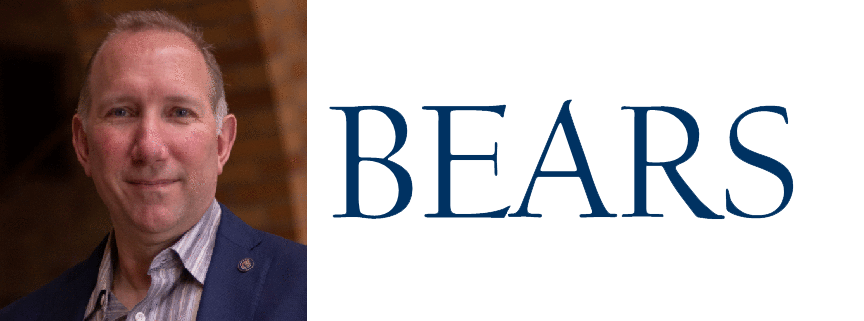Dr. Matthew P. Sherburne

Welcome to BEARS, the Berkeley Education Alliance for Research in Singapore. BEARS was established in 2011 and housed at Campus for Research Excellence and Technological Enterprise (CREATE) in Singapore. BEARS facilitate collaborations between the University of California, Berkeley, Nanyang Technological University, and National University of Singapore to address topics that are relevant to Singapore and the world largely. It is through these large-scale international collaborations that the Grand Challenges facing the world can be addressed. These collaborations allow researchers in Singapore to leverage facilities at UC Berkeley and for researchers at UC Berkeley to similarly leverage facilities in Singapore, thus allowing an acceleration of research results.
BEARS seeks to serve as the anchor point for the UC Berkeley community in Asia particularly serving as the of engagement with the nations of the Association of Southeast Asian Nations (ASEAN). BEARS also seeks to serve UC Berkeley's mission to advance teaching, research, and public service.
BEARS research programs have focused on sustainability, renewable energy, and decarbonization:
The Singapore-Berkeley Research Initiative for Sustainable Energy, or SinBeRISE.
The SinBeRISE program goal is to improve the way power is generated through the development of novel solar cell materials and processing techniques. The program explored the production of liquid fuels and high value chemical compounds from a feedstock of CO2.
The Singapore-Berkeley Building Efficiency and Sustainability in the Tropics, or SinBerBEST.
The SinBerBEST program goal is to optimize the way power is deployed to the built environment. This goal is achieved through deploying new materials, information technology, new types of sensors, innovative control and operating systems, and novel testing methodologies. The intelligent integration of all these components is a key to successfully optimizing the built environment.
Dr. Matthew P. Sherburne
CEO/Director BEARS